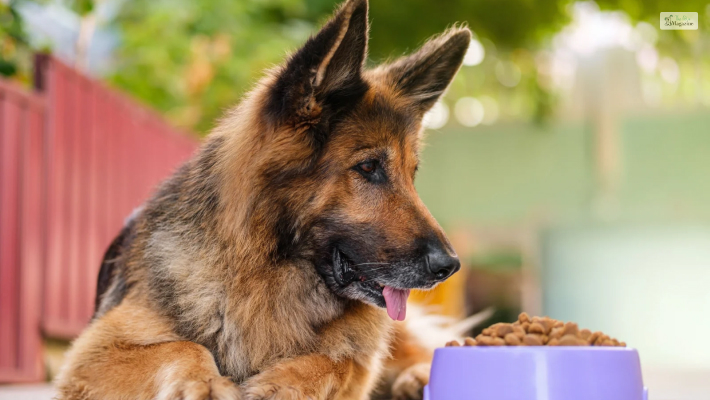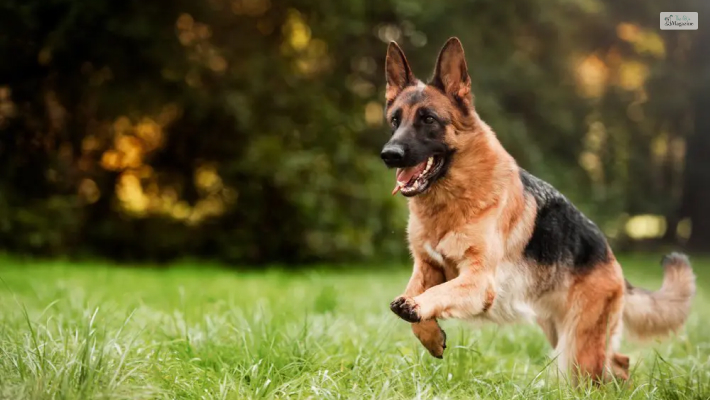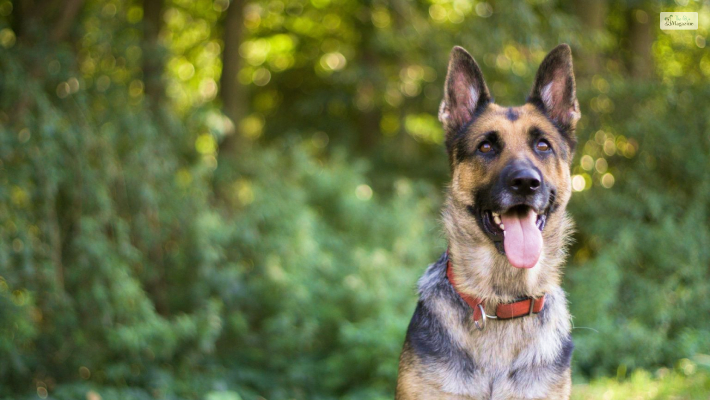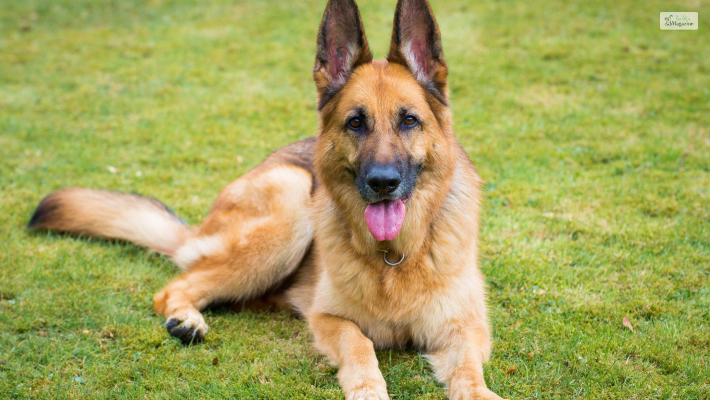Maximizing Your German Shepherd’s Lifespan: A Guide for Pet Owners


Bred for the first time in 1882 in Germany, the German shepherd dog (Deutscher Schäferhund) descends from a long line of sheep-herding dogs. They are one of the most popular working dog breeds in the world, highly sought after for qualities like loyalty, courage and intellect.
German shepherds were originally bred to herd sheeps and guard them, which they still do to this day. But nowadays german shepherds are also being used in other capacities such as guide dog for the blind, police work and search and rescue missions.
Because of qualities like agility, strength, speed, tracking and stealth, they are one of the most popular dog breeds used by the military and the police. But with proper training, they also make great family pets. Thus, there is quite a high demand for pure-bred german shepherds.
But like all purebred dogs, they come with a host of health issues that can affect german shepherd lifespan. This includes but is not limited to hip dysplasia, Gastric dilatation-volvulus (enlargement of stomach which can be life threatening), elbow dysplasia, degenerative spinal stenosis.
What Is The Lifespan Of A German Shepherd?

The average lifespan of a german shepherd is around 9 to 13 years. German shepherd lifespan female tend to be 1-2 years longer compared to german shepherd lifespan male. The average lifespan of a female German shepherd is around 11 years while that of a male german shepherd is 9.7 years. A lot of factors can affect german shepherd lifespan. This includes nutrition, exercise, genetics, and environment.
Here are some common genetic disorders that German shepherds suffer from –
- Gastric dilatation-volvulus
- elbow dysplasia
- hip dysplasia
- degenerative spinal stenosis
- Elbow hygroma
- Von Willebrand disease
- Degenerative myelopathy
How to maximize your German shepherd’s lifespan?
Want to maximize your average German shepherd lifespan? Scroll down to learn how.
Feed them a nutrition-rich diet
German Shepherd Mixes or even regular German Shepherds lead a very active lifestyle and thus require a high-quality, protein-rich diet that will enable them to maintain their energy level. Their diet needs to be balanced and rich in nutrients that will enable them to maintain their active lifestyle and have a healthy coat.

They are prone to gastrointestinal issues and bloating. Thus it is essential that their food be composed of ingredients that can be digested immediately. The primary ingredient in a German shepherd’s diet needs to be whole meat protein such as beef, chicken, or fish. In addition to protein, it should also contain carbohydrates, fats, grains, and vegetables.
An adult German shepherd’s food should have 18 percent protein and 5 percent fat, whereas a growing German shepherd puppy requires food that contains 22 percent protein and 8 percent fat. If you are feeding commercial dog food to your pup, check the label to make sure it contains the appropriate percentage of ingredients.
You should also avoid dog food brands that use artificial colors, flavors, additives, fillers, and preservatives. These do not have any nutritional value and may upset your dog’s stomach. German shepherds are large dogs that need around 1500 to 1700 calories per day. The amount of calorie intake will depend on your dog’s weight, size, amount of exercise it gets, and age. Make sure to consult your veterinarian to know the appropriate calorie requirement for your pup.
They need lots of exercise
German shepherds are working dog breeds and, therefore, need plenty of exercises to stay fit and happy. An accurate German Shepherd Growth Chart will tell you that exercise is absolutely mandatory for these dogs. It will also help to maximize their overall lifespan.

A 6-month-old German shepherd puppy needs around 30-60 minutes of exercise every day, whereas an adult German shepherd requires 1-2 hours of exercise per day.
These dogs are highly energetic and will be up for any and all kinds of activities. This includes but is not limited to hiking, playing fetch, playing tug of war, swimming, biking, and of course, the good old walk in the park. You can take your adult German shepherd for all these activities and more.
But if you have a puppy, you should avoid activities that involve excessive running, running, or leaping. Their growing joints will not be able to take the strain of intense activity sessions. Instead, you can try out activities like agility training and obedience training with your GSD pup. German shepherds can quickly become overweight if they don’t get enough exercise each day. Weight gain can lead to other serious health issues, joint and muscle injuries, heart issues, and the like.
Dental care is a must
Studies have shown that around 80-90% of dogs over the age of 3 suffer from periodontal disease. The main reason for that is periodontal disease has no outward symptoms. Therefore, in most cases, it is not identified until it is already in an advanced stage. So, it os vital to be aware of what your German Shepherd Puppy Eats!

A build-up of plaque underneath the gums causes inflammation which leads to gaps between tooth and gum. It also causes damage to the periodontal tissue underneath the gums which ultimately results in tooth loss along with pain and discomfort.
In addition, periodontal disease affects the German shepherd lifespan, as it has been linked to serious health issues related to the liver and heart. Thus it is important to prevent periodontal disease. You can do so by brushing your dog’s teeth regularly at home and taking him for a professional cleaning whenever possible.
Check for ticks and fleas
German shepherds are active dog breeds that love spending all their time outdoors. Unfortunately, this may result in ticks and/or fleas getting attached to your dog’s coat. Ticks and fleas are parasites that act as a carrier for deadly diseases and can lead to several health complications that will shorten the lifespan of your beloved pooch.

Ticks and fleas are parasites that act as a carrier for deadly diseases and can lead to several health complications that will shorten the lifespan of your beloved pooch, especially if you have a white german shepherd or even a Black German Shepherd.
This includes anemia, contact dermatitis, Lyme disease, tick paralysis, and the like. At the very least, a tick or flea bite will irritate your dog’s skin. Fleas and ticks are most common during the warmer months. Hence during warm weather, regularly check your dog’s coat for the presence of fleas or tick. If you find even a single one, contact your vet for a treatment plan.
Take them for regular medical check-ups
They say that prevention is better than cure. This is why you should take your German shepherd to the vet’s office for a check-up on a regular basis. This will enable your veterinarian doctor to spot pre-existing health conditions or any other disease that your pup may be suffering from. They will then be able to provide you with a suitable treatment plan or advice you regarding preventative measures.

If you have German shepherd puppies, then you should take them twice a year for a complete medical check-up. Once they are fully grown up, a once-a-year check-up will suffice.
Health Issues To Watch Out For in German Shepherds
German shepherd dogs are wonderful companions, but they also have some health issues that owners should be aware of. Some of the common health problems that affect this breed are:
Hip dysplasia:
This is a condition where the hip joint is malformed, causing pain and arthritis. It is caused by genetic factors and can be worsened by overfeeding, excessive exercise, or injury. Hip dysplasia is the most common health problem in German shepherds.
Elbow dysplasia:
This is similar to hip dysplasia, but it affects the elbow joint instead. It can cause lameness, swelling, and inflammation in the affected leg. Elbow dysplasia is also inherited and can be aggravated by environmental factors.
Bloat or gastric dilatation-volvulus (GDV):
This is a life-threatening condition where the stomach fills with gas and twists, cutting off blood supply and causing shock. It can happen when the dog eats too much, too fast, or exercises right after eating. Bloat can cause difficulty breathing, drooling, vomiting, and collapse. It requires immediate veterinary attention.
Epilepsy:
This is a neurological disorder that causes seizures, which can range from mild to severe. Epilepsy can be idiopathic (of unknown cause) or symptomatic (caused by another condition, such as a brain tumor or infection). Epilepsy can be managed with medication, but it may not prevent all seizures.
Hemophilia:
This is a bleeding disorder that affects the blood’s ability to clot. It can cause excessive bleeding from minor injuries, nosebleeds, bruising, and joint swelling. Hemophilia is inherited and more common in male dogs. It can be diagnosed with a blood test and treated with blood transfusions or clotting factors1.
Diabetes:
This is a metabolic disorder that affects the body’s ability to use glucose (sugar) for energy. It can cause increased thirst, urination, appetite, and weight loss. Diabetes can be caused by genetic factors, obesity, or pancreatitis. It can be controlled with insulin injections, diet, and exercise1.
Cataracts:
These are cloudy spots on the lens of the eye, which can impair vision and lead to blindness. Cataracts can be congenital (present at birth) or acquired (develop later in life). They can be caused by genetic factors, aging, trauma, or diseases such as diabetes. Cataracts can be surgically removed or treated with eye drops.
Degenerative Disc Disease
This is a condition where the discs between the vertebrae of the spine degenerate, causing pain, stiffness, and nerve damage. It can affect any part of the spine, but it is more common in the neck and lower back. Degenerative disc disease can be caused by aging, trauma, or genetics. It can be treated with painkillers, anti-inflammatories, muscle relaxants, or surgery1.
Panosteitis:
This is a condition where the long bones of the legs become inflamed, causing pain and limping. It usually affects young dogs between 5 and 18 months of age. It can affect one or more legs at a time and can shift from one leg to another. The cause of panosteitis is unknown, but it may be related to growth, nutrition, or infection. It usually resolves on its own within a few months, but it can be treated with painkillers and rest14.
Allergies:
These are immune system reactions to substances that are harmless to most dogs, such as pollen, dust, fleas, or food. Allergies can cause itching, scratching, licking, chewing, hair loss, skin infections, ear infections, or digestive problems. Allergies can be diagnosed with skin or blood tests and treated with antihistamines, steroids, immunotherapy, or avoidance of the allergen.
These are some of the common health issues that German shepherd dogs are prone to, but they are not the only ones. If you notice any signs of illness or discomfort in your dog, you should consult your veterinarian for diagnosis and treatment. German shepherds are loyal and intelligent dogs, and with proper care and attention, they can live long and happy lives.
Conclusion
As they say, ‘dogs might be in just a small part of our lives, but to them, we are their whole life.’ Hence, we just have to accept the fact that our precious pups have a shorter lifespan than us and shower them with all our love, time, and attention for the very short period of time that we have them.
What did you think of our tips to maximize your German shepherd’s life span? Do you have any tips of your own to add to this list? Please let us know in the comments below.









Leave A Comment